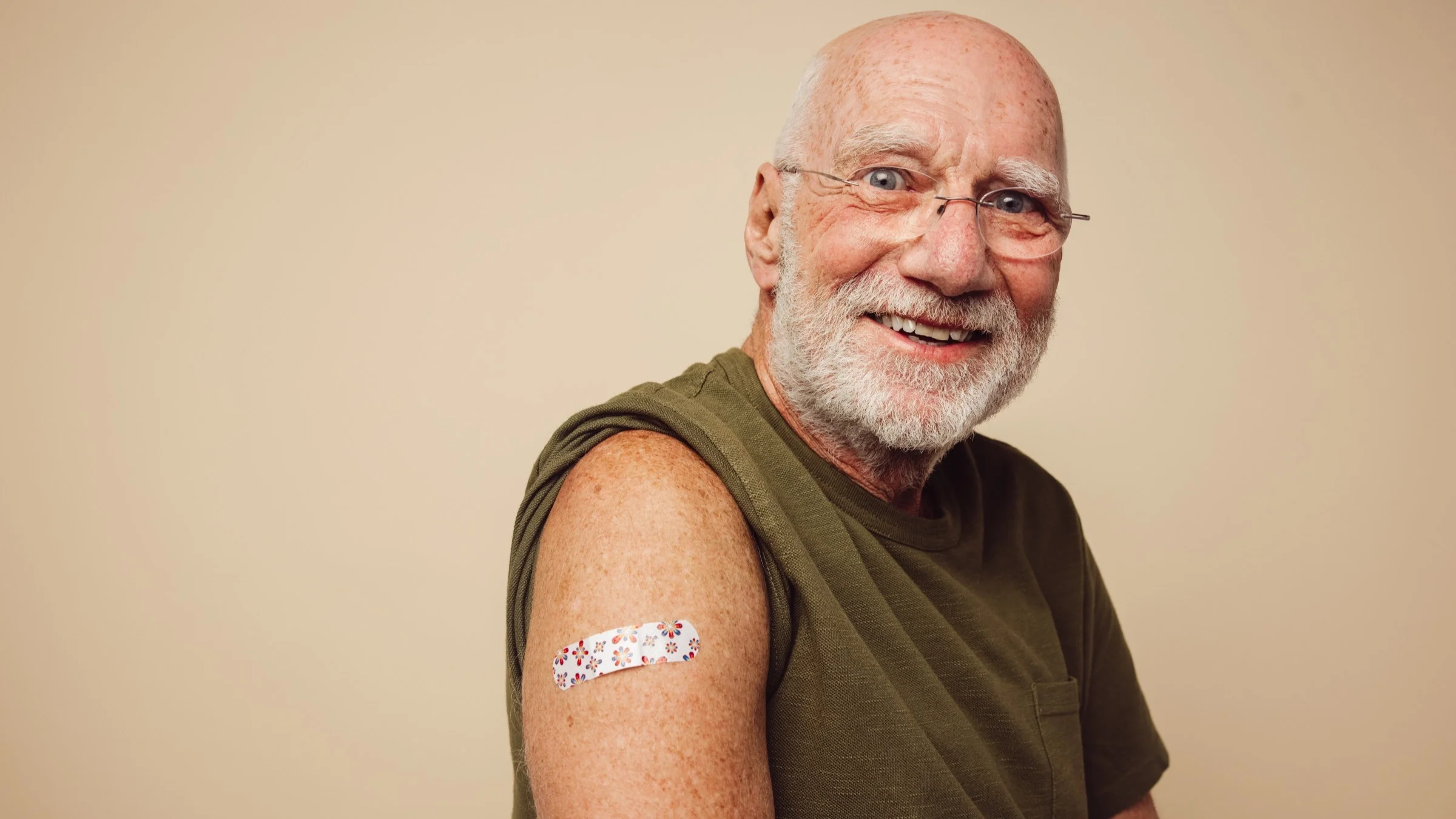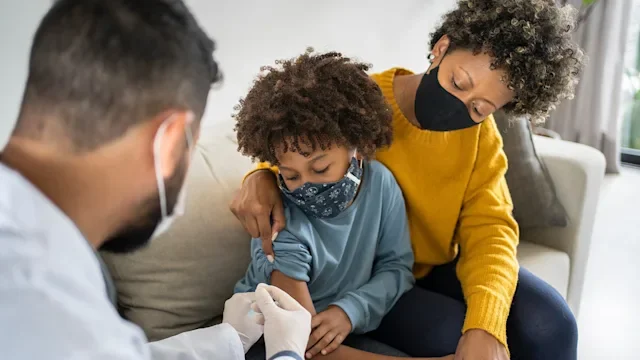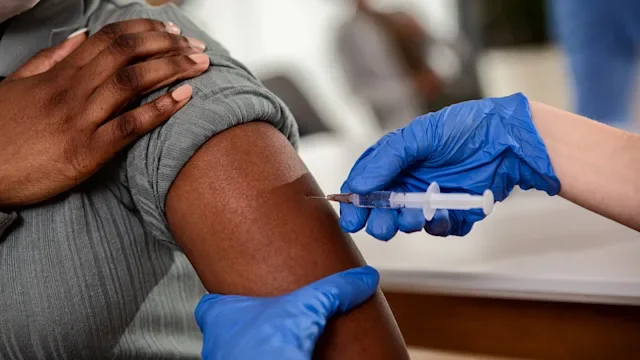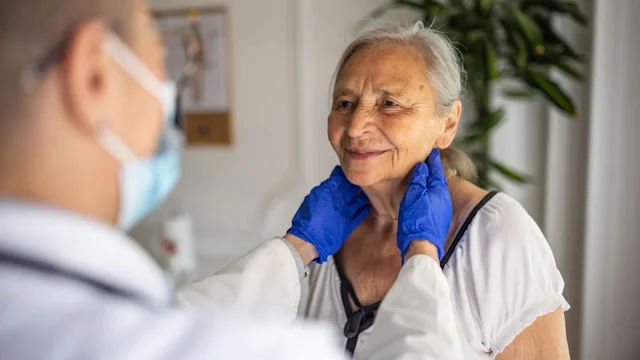Key takeaways:
Older adults are at high risk of suffering complications from common infections that vaccines can prevent.
Vaccines are a safe and effective way to improve the health of seniors.
Seniors should prioritize receiving all vaccines that are recommended for them, particularly COVID-19 and flu vaccines.
Save on related medications
Vaccines save lives. The vaccines that we have approved in the U.S. are safe and effective and can prevent serious illness and death. Seniors, or adults over 65 years old, can benefit from receiving vaccines and the protection that they provide from serious illnesses.
This piece will highlight which vaccines are recommended for seniors and why every senior should prioritize getting the vaccines that are recommended for them.
Why are vaccines important for seniors?
As you get older, your immune system (the system in your body that fights infections) stops working as well. This is a process that we don’t fully understand. We call it “immune senescence.”
In addition to a weakened immune system, older adults are more likely to have chronic illnesses like heart disease, lung disease, or liver disease. Having one or more chronic illnesses (this is a complex concept that we sometimes call “multimorbidity”) also puts you at increased risk of having problems if you develop an infection.
Vaccines are our best tool to prevent infection, and preventing an infection in a senior who is at high risk of getting very sick from an illness can save their life. This is why vaccines are so important for seniors.
What are the most important shots that senior citizens should get?
There are several vaccines that are recommended for seniors. All of them are important and recommended for good reasons. The most important vaccines are the ones that have the best chance at preventing serious illness and death. This can change with new treatments and infection patterns. Right now, the COVID-19 and flu vaccines should be prioritized since they have the best chance of preventing serious illness and saving your life.
COVID-19
COVID-19 remains an active worldwide pandemic, and the risks of suffering and dying from COVID-19 are highest in older adults. The vaccines that we have are safe and effective in seniors. Older adults are a high priority for getting the COVID-19 vaccine, and seniors should prioritize getting the vaccine as soon as it is available to them.
The only reason you should not get the COVID-19 vaccine is if you have had a serious allergic reaction (like trouble breathing) after being exposed to your first dose or you have had a serious allergic reaction to one of the components of the vaccine in the past.
Flu
The seasonal flu vaccine saves lives, and older adults should receive the flu vaccine every year. There is an “extra strong” flu vaccine that is specifically made for seniors. This stronger vaccine lets seniors (who have immune systems that don’t work as well as in younger people — that “immune senescence” concept discussed above) make more antibodies to more effectively fight the flu virus.
Read more like this
Explore these related articles, suggested for readers like you.
Shingles
Shingles is caused by the chickenpox virus (also called varicella zoster virus) “reactivating” in your nerves and leads to a painful rash. Shingles infection is rarely deadly (unlike COVID-19 and flu infections), but it can be painful, and sometimes the pain is long-lasting.
A new vaccine to protect against Shingles, called “Shingrix” or the recombinant herpes zoster vaccine, was approved for use in adults over the age of 50 in 2017. It is 90% effective at preventing Shingles infections.
There is another Shingles vaccine, “Zostavax,” that we used before Shingrix was available. It stopped being sold in the U.S. in 2020 because Shingrix is more effective. Even if you received Zostavax in the past, we recommend getting Shingrix for more protection.
Pneumonia
There are two vaccines approved to prevent complications from infections caused by a bacteria called “Streptococcus pneumoniae.” One, called “pneumovax” or “PPSV23,” is recommended to be given once for all adults over the age of 65. The other, called “Prevnar 13” or “PCV13,” is recommended for older adults with certain risk factors (like immune suppression). An older adult without these risk factors should discuss whether PCV13 is an appropriate vaccine for them with their healthcare provider.
Tetanus/whooping cough
The recommendations for the tetanus vaccine (currently given as a combination vaccination with diphtheria, which can cause a serious nose and throat infection, and whooping cough) are the same for older adults as younger adults. Every adult should get the tetanus vaccine every 10 years.
Sometimes older adults receive this combination vaccine (“Tdap”) when they are going to be grandparents for the first time. This is to protect the newborn baby from catching whooping cough before the baby is safe to receive the vaccination themselves. You may also receive the tetanus vaccine right after you have an injury or wound that puts you at increased risk of developing tetanus, but it is best to be prepared and have the vaccine before any injury occurs.
Hepatitis B
Most people are vaccinated against the hepatitis B virus as children. It is a virus that causes liver inflammation and is passed from person to person through body fluids (most commonly blood). If you are concerned about catching hepatitis B or have a higher risk of getting hepatitis B, you should discuss this vaccine with your healthcare provider.
What are the most common side effects that older adults have from vaccines?
The side effects that older adults have from vaccines are similar to side effects that younger adults have from vaccines. Interestingly, vaccine side effects tend to be worse in younger adults than older adults (more on this later). Common side effects include fever, muscle aches, and soreness or redness at the injection site.
Does Medicare cover vaccines for seniors?
Medicare does cover vaccines for seniors, but there are some complexities here, which we will review. The COVID-19 vaccination is free for everyone in the U.S. when it is their turn.
Vaccines covered under Medicare part B
The pneumonia and flu vaccines can typically be given at your healthcare provider’s office and are covered as an outpatient medication under Medicare part B. The hepatitis B vaccine, if indicated, is also covered by Medicare part B.
Vaccines covered under Medicare part D
The shingles and tetanus/whooping cough vaccines are covered like a prescription medication, under Medicare part D. You most likely will have to get these vaccines at your pharmacy (they don’t typically require a prescription), and the cost varies based on your part D coverage.
Are senior citizens more at risk for bad reactions to vaccines?
Older adults tend to do well after receiving vaccines. In fact, younger adults tend to have more significant side effects to vaccines than older adults. Reactions to vaccines, like fever and muscle aches, are signs that the vaccine is working and has “activated” your immune system. Seniors have immune systems that don’t work as well as the immune systems of younger adults, so their “reactions” to vaccines tend to be milder.
What are the risks of not getting vaccinated for senior citizens?
Serious illness and death are the risks of not getting vaccinated for senior citizens. If you decide not to get vaccinated, this can also put the people who you are in close contact with at higher risk of getting sick. If enough people decide not to get vaccinated, it can make it more difficult to reach herd immunity, when it is harder for an infectious disease to actively spread in a community.
The bottom line

Why trust our experts?


Vaccines are important and have the potential to save the lives of older adults. Most older adults do well after receiving vaccines. The COVID-19 and flu vaccines should be a top priority for all older adults.


















